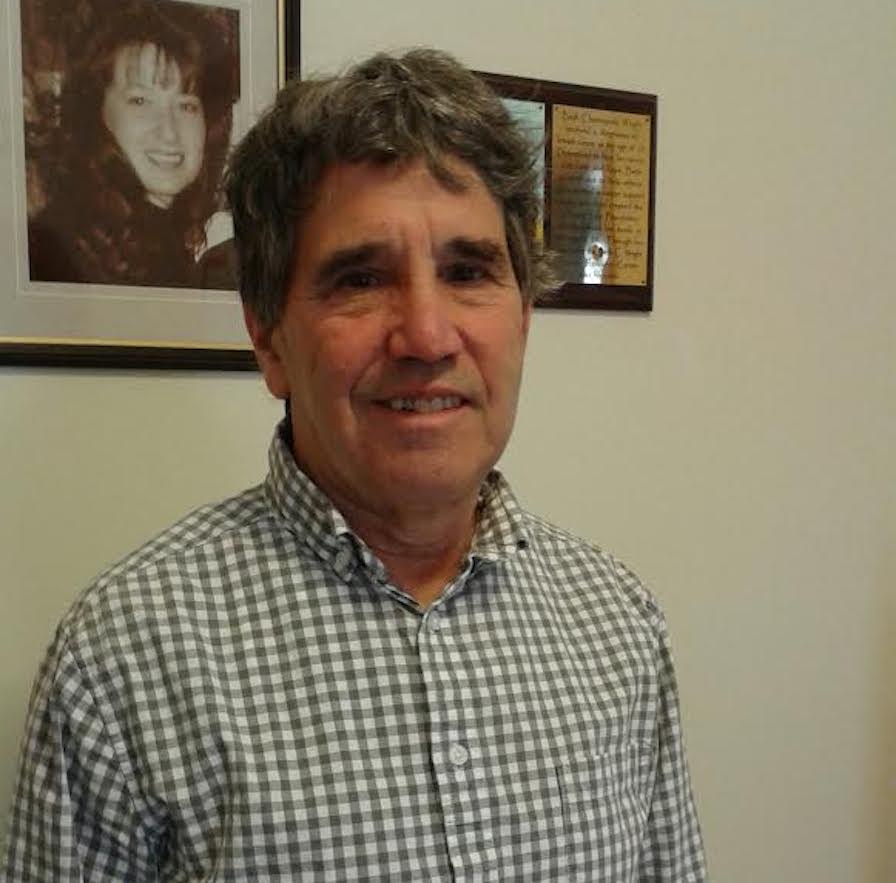Challenge Cancer 2020 is our visionary initiative to cut cancer rates in Maine by 2020. Our goal for a Maine less burdened by cancer requires active participation from people and communities across the state. Our success depends on inviting key stakeholders to the table to share strategy, tactics, and experience.
We recently sat down with one of our stakeholders: Michael Reisman, Executive Director of the Beth C. Wright Cancer Resource Center (BCWCRC) in Ellsworth. Since 2010, BCWCRC has received three Maine Cancer Foundation grants to support access to care for Downeast cancer patients. Currently, BCWCRC along with Healthy Acadia are in the first year of a three-year grant to fund two part-time cancer patient navigators in Washington County. Reisman also serves on the Leadership Roundtable for Maine’s Impact Cancer Network (a statewide initiative, currently led by Maine Cancer Foundation), in order to address the high rates of cancer in the state.

When Michael Reisman was in his early twenties, he spent a summer in Bar Harbor. “I thought it was one of the best places I’d ever been,” said Reisman, who grew up in Philadelphia and went to college at University of Michigan. When he didn’t finish his degree, he faced a crossroads –head home to Pennsylvania, or go back to Maine. He chose the latter.
Fast forward to 2016 and Michael is in his 12th year at the helm of Beth C. Wright Cancer Resource Center(BCWCRC) in Ellsworth, Maine. Noticing the high cancer mortality rates in neighboring Washington County, he reached out to colleagues at Healthy Acadia, a community based health center with locations in Ellsworth and Machias, to co-write a grant to Maine Cancer Foundation. The project, titled Downeast Cancer Patient Navigation Across the Continuum of Care, is awarded $164,000 over three years to fund a patient navigation program to support up to 75 cancer patients a year in Washington County.
The Harold P. Freeman Patient Navigation Institute defines patient navigators as individuals who assist cancer patients by “eliminating barriers to timely screening, treatment, and supportive care of cancer.” While the grant was originally written to hire and support one full-time patient navigator for cancer patients in Washington County, the project’s steering committee quickly shifted focus. Two part-time navigators were hired instead – Marianne Moore is based in Calais and Angela Fochesato is in Machias. “Marianne used to be the mayor of Calais, and Angela is a cancer survivor who grew up in Washington County with a strong medical background,” said Reisman.
Moore and Fochesato guide Washington County cancer patients and their families through every step of the journey. “Cancer is such a unique experience for people, so the navigators wear many hats and do a lot of different things,” said Reisman. Successful navigators adapt to each individual’s needs – from connecting patients to local resources and coordinating appointments, to liaising between patients and providers – all while providing emotional support during the often devastating time.
Cancer patients in Washington County face barriers which include low income levels (the poverty level hovers around 19%), long distances to access treatment, and sparsely settled communities (32 people per square mile), which makes disseminating cancer resources difficult. “When I first got started [with BCWCRC] I wanted to figure out where to meet people, and then I realized you have to meet them in their own community,” says Reisman.
While each diagnosis is unique, there is one tremendous commonality: the incredible and largely unforeseen financial burden. Michael paints the picture of a person driving from Calais to Bangor every day for six weeks of radiation as only part of the financial puzzle: “200 miles round trip at 20 miles per gallon, equates to $16 a day with low gas prices. If your treatment plan is 5 days a week for 6 weeks, you’re spending $480 in gas alone. This doesn’t factor wear and tear on your vehicle and general maintenance.”
Reisman also believes many people in Washington County who don’t have insurance would rather forego treatment altogether than risk financial devastation. “Recently one of our navigators assisted a man with skin cancer who needed outpatient surgery. Because the provider didn’t accept certain types of insurance, the patient had to come up with $5,000 for the surgery.” The navigator was able to offer support finding financial assistance and the patient leveraged enough community resources to have the surgery. “We all deal with financial strains in normal life, but it is often compounded when you’re dealing with a cancer diagnosis, especially when you can’t work.”
Today, Hancock County boasts the lowest cancer mortality rate in Maine, but Washington County still has the highest. “It’s heartwarming to know we’re going in the right direction, but there’s still work to be done,” said Reisman. BCWCRC’s patient-centered approach, along with the small size of the organization, allows them to respond proactively to the changing needs of their community members. “We strongly believe in the patient navigator program and the potential it has to lower the mortality rate in Washington County,” said Reisman.
The decision Michael made all those years ago -- to settle in Maine -- has reaped countless benefits. His threads in the fabric of the Downeast community deepen each day and he is grateful for the myriad opportunities throughout his career to support the people he works with and lives beside. “We are community members who want to help our neighbors deal with a cancer diagnosis,” he said. “To feel that you aren’t alone is extremely important.” In fact, it’s everything.
Beth C. Wright Cancer Resource Center and Healthy Acadia is currently receiving $164,000 over three years to fund their patient navigation program in Washington County, Maine. Titled Downeast Patient Navigation Across the Continuum of Care, you can read more about the project here.
Learn more about our current grants along with opportunities for your program or organization.
Want to make sure programs like these continue for Mainers across the state? Consider making a gift today.
#togetherwecan #challengecancer2020
